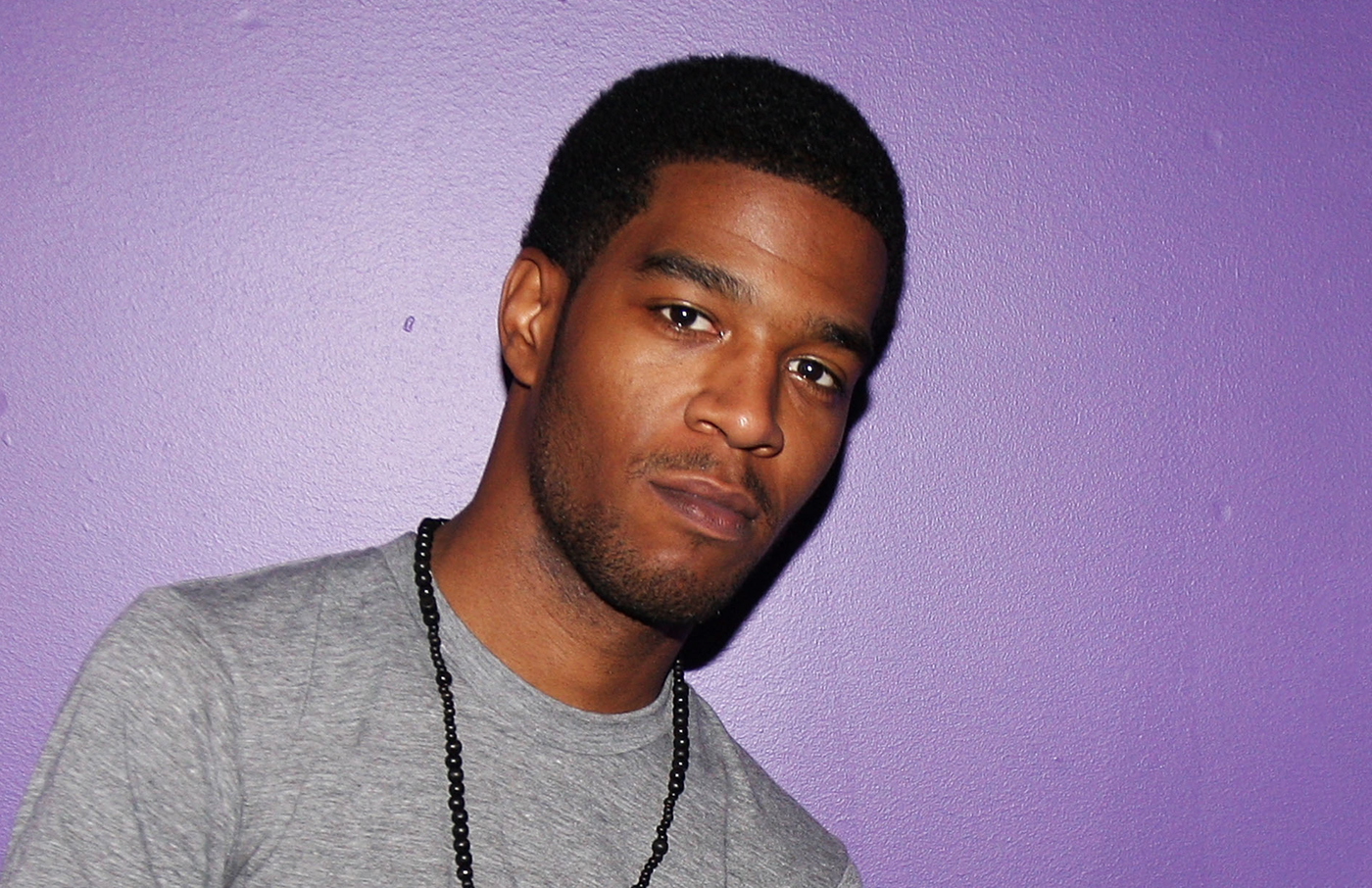
Before recording his breakout single “Day ‘N’ Nite,” Kid Cudi received a text message that nearly derailed his career before it began: He was about to be evicted.
The aspiring rapper was in his early 20s, living in New York City after recently relocating from Cleveland. Every month, he gave his share of the rent to his two roommates, assuming it would make it into his landlord’s pockets. And it did, until his roommates neglected to pay their portions and he received a message notifying him that he was being kicked out of the apartment by his landlord.
Kid Cudi, born Scott Mescudi, was working miscellaneous jobs (including a retail position at the BAPE store in NYC) and had little savings to survive on. With no place to call home, his only clear option to avoid homelessness was to move back to Cleveland.
But, sensing positive momentum in his music career, Cudi wasn’t ready to go home. Instead, he found another option, thanks to his friend and producer Dot Da Genius. Cudi received an offer to move into Dot’s parents’ East New York home, where he formed a tight collaborative bond with the producer, recorded his earliest hits, and met a father figure who gave him invaluable life advice.

Cudi first met Dot, born Oladipo Omishore, through a mutual friend shortly after moving to New York, and they instantly hit it off. “We connected on music, but we became friends almost immediately,” Dot tells Complex. “Our personalities just aligned. We can be in a room for many hours without being annoyed of one another.”
Dot, who was living in campus housing at New York University, was also experimenting with producing and engineering. On the weekends, before Cudi moved in, the two young artists would meet at Dot’s parents’ East New York home and spend hours creating music in a makeshift studio that Dot’s father Adeboyega Omishore assembled—first in the basement and then rebuilt in a room upstairs.
“I built the studio for my son because he was in college and was doing well, and I saw that he had [an] interest in doing music,” Omishore remembers. “For him to keep doing well in school, I decided to build the studio for him.”
“We was all we had at the time. It wasn’t like anyone cared what we were doing. We both would be pushing each other to create something great.” - Dot Da Genius
The basement studio—equipped with DAWs, Sonar, Pro Tools, and an MD8000 taramp—acted as a safe space. “I’m from East New York, which, back then, it wasn’t the best neighborhood,” Dot says. “There’s a lot of murders, a lot of drugs and all that.”
Dot remembers how crucial the studio was for Cudi and himself as they began their careers. “The studio was our sanctuary,” he recalls. “Whether or not we were making music, we were always in the studio. I think it just gave us the freedom to create what we wanted and for as long as we wanted to.”
Dot, who says he worked “crazy hours” with Cudi in the space, explains that there was no distinction between when they began recording and when they stopped. They’d get so lost in the creative process that Omishore would go to bed and wake up the next morning—only to find that his son and Cudi hadn’t left the studio all night. Dot says the creative process was “effortless,” and points out that those long nights in the studio were when each of them found themselves as artists.
Then Cudi revealed the news of his imminent eviction.
“He was just extra silent in the session,” Dot recalls of that day. “Me knowing him up until that time, he’s not a silent person. He’s very animated, very excited, very talkative when we’re creating. It was odd.”
After a little prodding, Cudi explained his dilemma. Feeling defeated and unsure of the future, Dot then turned to his father, who had experienced a similar scenario in his own youth.
“When [my dad] first came to America from Nigeria, he had the same situation and he ended up being homeless for a bit,” Dot says. “He had to sleep on the train and all this shit. I never thought about it until just now, but that might’ve been his thought process on letting him stay.”
Learning of Cudi’s situation, Omishore requested to speak with him alone. After some consideration, he invited him to live with the family until he figured out his next move. Cudi was taken aback by the generous offer, which gave him the opportunity to follow his dreams and continue making music.
For Dot’s father, the decision had deeper implications. “At that time, I didn’t even know that he could make music,” Omishore admits now. “See, my son and him [were] about the same age, and I pray that anywhere my kids goes, I want them to see the savior of God. Whatever I can do for kids and for anyone, I will do. It was during the winter. For me to let him out on the street and have no place to stay, I really can’t do that.”
Dot remembers the living arrangement well. “We pretty much took everyone’s weekend away from them because we would be in the living room recording and all this stuff,” he says. “[Cudi] was sleeping on the living room couch. It wasn’t perfect, but we made it work.”
Once Cudi moved in, he was treated like any other member of the family. Omishore established a household structure very early on, ensuring all the rules that applied to Dot and his brother also applied to Cudi. “It was important for him to treat Cudi like he treated me and my brother,” Dot explains. “The same way I would get in trouble, the same way my dad will help me out with a situation, he would do the same exact thing for Cudi.”
The family dynamic did come as something of a culture shock to Cudi, though, in comparison to his own upbringing in Ohio. He had been raised primarily by his mother, Elsie Harriet Banks, a middle-school choir teacher who he’s called a “superwoman.” His father, Lindberg Mescudi, a substitute teacher, painter, and World War II Air Force veteran, passed away from cancer when Cudi was 11 years old. Once he was in the Omishore home, Cudi faced a steep learning curve when it came to house rules and family customs.

“I come from a Nigerian background, and it’s very strict,” Dot says, explaining that he grew up in a balanced yet disciplined household. Both of his parents provided boundaries: His mother handled the chores, instructing the boys to clean the kitchen and bathroom and take the trash to the curb every Friday. His father played the role of the enforcer, checking Cudi when he “would go out and come home some crazy hour in the morning thinking he bypassed chores.” Dot recalls, “My parents would either be waiting for him to get home or, as soon as that morning hit, my dad was at his door.”
“My dad don’t play,” Dot adds. “Even though he has a big heart [and] he’s a pastor, as soon as you start disobeying, as soon as you start not being respectful, a whole different person comes out. [Cudi] was thrown right into it. I’m sure it was more difficult for him.” Still, Cudi maintained a strong bond with Dot’s dad. In a 2012 Complex cover story, Cudi described Omishore as the “most fucking amazing man I’ve ever met. This man was the first real father I was around since my own.”
“That was the role I played,” Omishore says. “I even took him to church. He didn’t like that. He had to go with me to church because I’m a bishop and we were going to church together. When it started, he would go out there and smoke, so I had to rebuke him—no, he can’t do that. You have to wait until you get home to smoke.”
The home dynamic didn’t just consist of rules and chores, though. Cudi also helped introduce a new, lighthearted energy to the house. “Scott was a funny person,” Omishore says. “He made the house very lively. When he ate cereal, he didn’t drink the milk. He just used the milk to to eat the cereal, and threw the milk away. My wife always said, ‘Why you wasting the milk? You are supposed to drink the milk.’ He has his little ways, but that is minor. Scott was fun to be around.”
Cudi’s extended stay brought him and Dot even closer. “That’s when he became more of a brother,” Dot remembers. But, of course, brothers argue, too. And when it came to the music, Dot admits there were plenty of creative differences. Dot was a “city boy” and Cudi was “the closest thing to country.” Their styles, approaches to music, and goals didn’t always align, and at times they’d hit a wall, with no resolution in sight. But even then, they’d argue with respect and brotherhood in mind.
“We was all we had at the time,” Dot says. “It wasn’t like anyone cared what we were doing. We both would be pushing each other to create something great.”
Living together and working around the clock, they made “heat almost immediately,” Dot remembers. One of the first songs they recorded after Cudi moved in was “Cleveland is the Reason,” a fan favorite to this day. “It was a developmental process for both of us during the time,” Dot says. “When I met Cudi, he was definitely more of a rapper-rapper than people will probably describe him now. And I definitely was at the precipice of my production.”
The Omishore home served as the birthplace of Cudi’s breakout hit, “Day ‘N’ Nite,” which was recorded in the upstairs home studio. Omishore distinctly remembers hearing the song blaring through the speakers for the first time. “When they were playing the music, I said to myself, ‘That sounds good,’” he remembers. “They were so happy about it, and I said, ‘It’s going to be a hit.’”
He was right. “Day ‘N’ Nite” became Cudi’s breakout hit, leading him to financial security and ultimately earning five platinum certifications. But it wasn’t the only thing the young rapper took away from his two years living in the Omishore house. The East New York home is where he first embraced a fearlessness and honesty that fans still see in his music today. And it’s where he and Dot received daily words of wisdom from Omishore.
“I just gave them advice that they should remain focused and be hard-working and make sure they don’t do what’s unrighteous in the music industry, because we know what it’s all about,” Omishore says. “And believe in yourself and pray. Pray upon every project that you do.”
Kid Cudi is headlining our fourth annual ComplexCon in Long Beach, which takes place Nov. 2-3 at the Long Beach Convention & Entertainment Center. For more info and tickets, click here.


